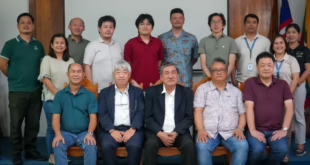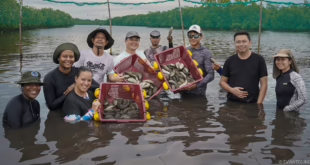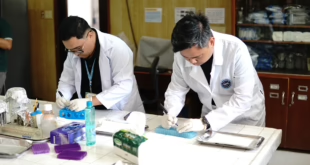By Development Communication Section

Nine participants attended the 37-day course on marine fish hatchery from 18 June -25 July at AQD’s Tigbauan Main Station. Trainees came from the government & private sectors based in the Philippines (3), Brunei Darussalam (2), Singapore (2), Cambodia (1) and Thailand (1).
A series of lectures and practical activities were done to provide the participants with technical knowledge and skills in biology, broodstock management and spawning & larval rearing of marine fishes such as milkfish, seabass, grouper, snapper, rabbitfish or pompano. Production of natural food for larvae was also part of the course.
One of the trainees from Singapore, Mr. Leonard Shoh, expressed his gratitude to the resource persons & staff for his delightful stay at AQD. “With the skills and knowledge that we have learned from this course, we sincerely hope that one day, we will be able to return to AQD and share our successes with you,” Mr. Shoh said during the closing ceremony.
Some practical sessions and lectures were done at AQD stations in Igang, Guimaras & Dumangas, Iloilo.


 SEAFDEC/AQD Southeast Asian Fisheries Development Center | Aquaculture Department
SEAFDEC/AQD Southeast Asian Fisheries Development Center | Aquaculture Department



